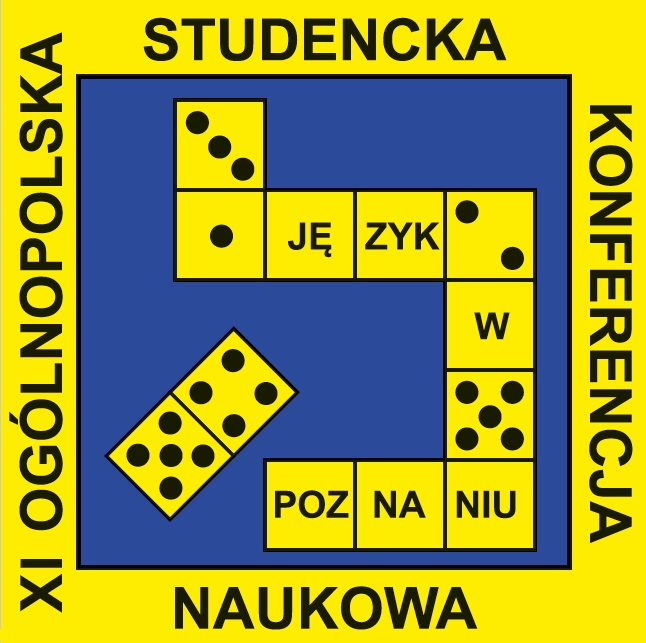XI edycja - abstrakty
Główna |
Organizacja |
Abstrakty |
Program |
Plakat |
Galeria |
Wytyczne |
Ankieta |

Prezentujemy listę referentów oraz tytułów wystąpień wraz ze streszczeniami. Zapraszamy do lektury!
Przypominamy, że język, w którym podany jest tytuł, jest równoznaczny z językiem całego wystąpienia.
Pod każdym streszczeniem widoczny jest skrócony program (aktualny na 04.04.2019), dzięki któremu można dowiedzieć się, jakie inne referaty będą wygłaszane podczas danej sekcji.
Martyna Faustyna Zachorska (Uniwersytet im. Adama Mickiewicza w Poznaniu)
100 years of Polish feminativa: A brief introduction
The claim that language shapes one's identity and influences reality may sound cliché, yet indeed in today's polarized political culture this belief is worth considering as never before. Aiming at making women visible in the Polish language, feminists (re)introduced feminine forms of occupational names (feminativa) to the mainstream. Suffice it to say, feminativa did spark a heated discussion as no other language issue before (maybe with a handful of exceptions, for instance, borrowings from English). Now, a few years later, even though feminativa are no more 'a feminist folklore', but an integral part of the liberal media discourse, they seem to be one of the most controversial aspects of Polish.
Contrary to the popular belief, nonetheless, feminativa are not a novelty; what feminists did was not 'introducing', but - in the majority of cases - 'reintroducing' them into language, since female occupational names were widely used before the Communist period.
Based on a preliminary study aiming to explore the usage of feminativa in the Interwar period, the presentation shows a brief history of the phenomenon at issue. Its structure is twofold: the theoretical part shows scholars' attitudes towards feminativa in the three periods: 1) prior to and in the Interwar period, 2) the period of Communism, and 3) in contemporary times. In the practical part, in turn, the author will discuss the distribution of the most 'controversial' feminativa across the decades, as well as the most and the least frequent feminativa in the Narodowy Fotokorpus Języka Polskiego (NFJP). The aim of the presentation is (a) to acquaint the listeners with the 'forgotten' history of female forms in Polish and (b) to encourage them to think critically about the language per se.
Gdzie i kiedy:
| W tym samym czasie ... 416, 504, 525 | sala: 505 moderacja: Alicja Tomys |
| 14:15-14:30 | Martyna Faustyna Zachorska (Uniwersytet im. Adama Mickiewicza w Poznaniu) - 100 years of Polish feminativa: A brief introduction |
| 14:30-14:45 | Paula Budzyńska (Uniwersytet Mikołaja Kopernika w Toruniu) - (Socio)cognitive methodologies for studying (textbook) discourse |
| 14:45-15:00 | Hanna Kasperek (Uniwersytet im. Adama Mickiewicza w Poznaniu) - Paralinguistic and prosodic features of a trustworthy voice |
| 15:00-15:15 | Katarzyna Młynarczyk (Uniwersytet im. Adama Mickiewicza w Poznaniu) - English lexical transfers in selected Russian Instagram comments and posts |
| 15:15-15:35 | dyskusja |